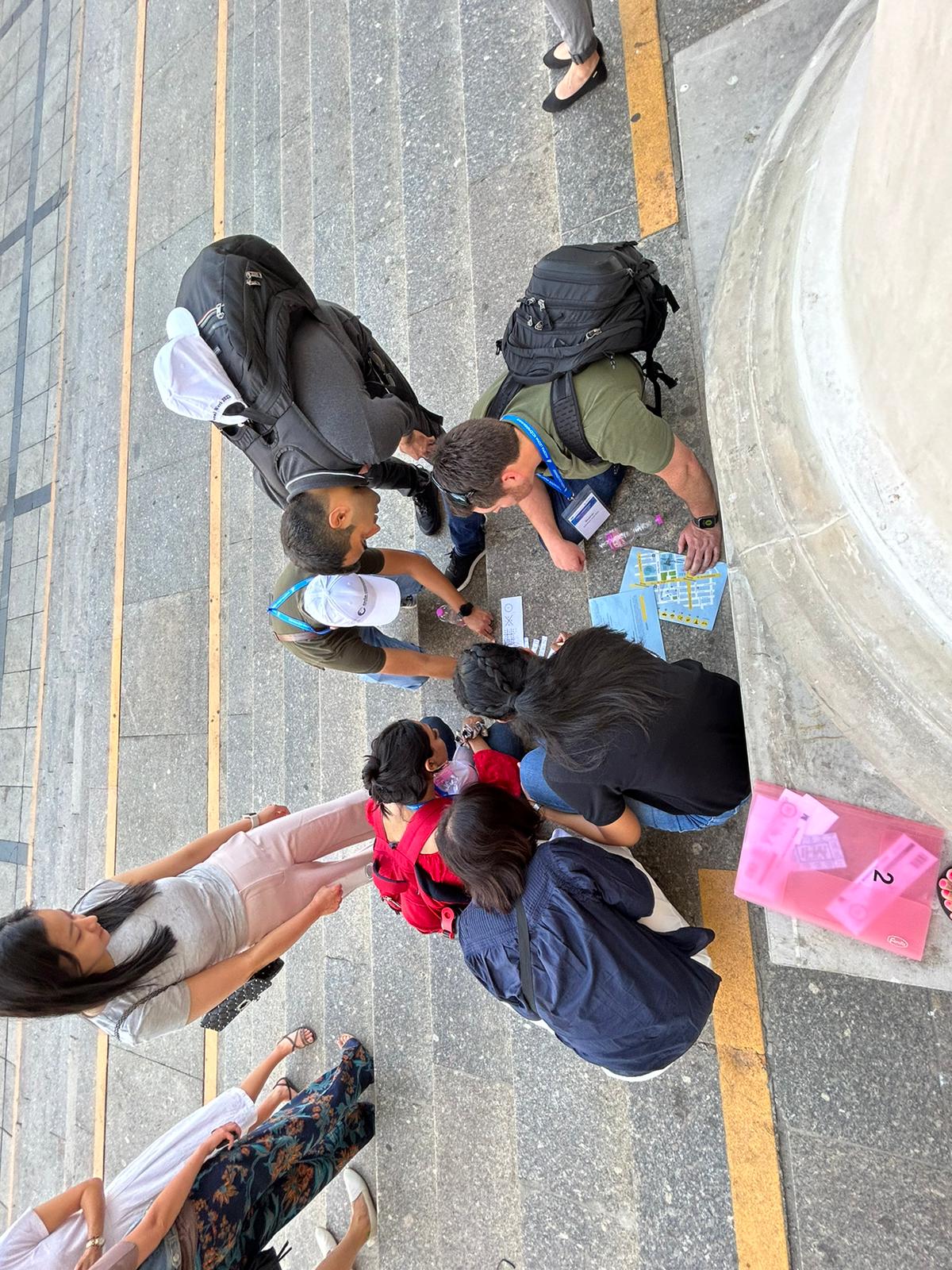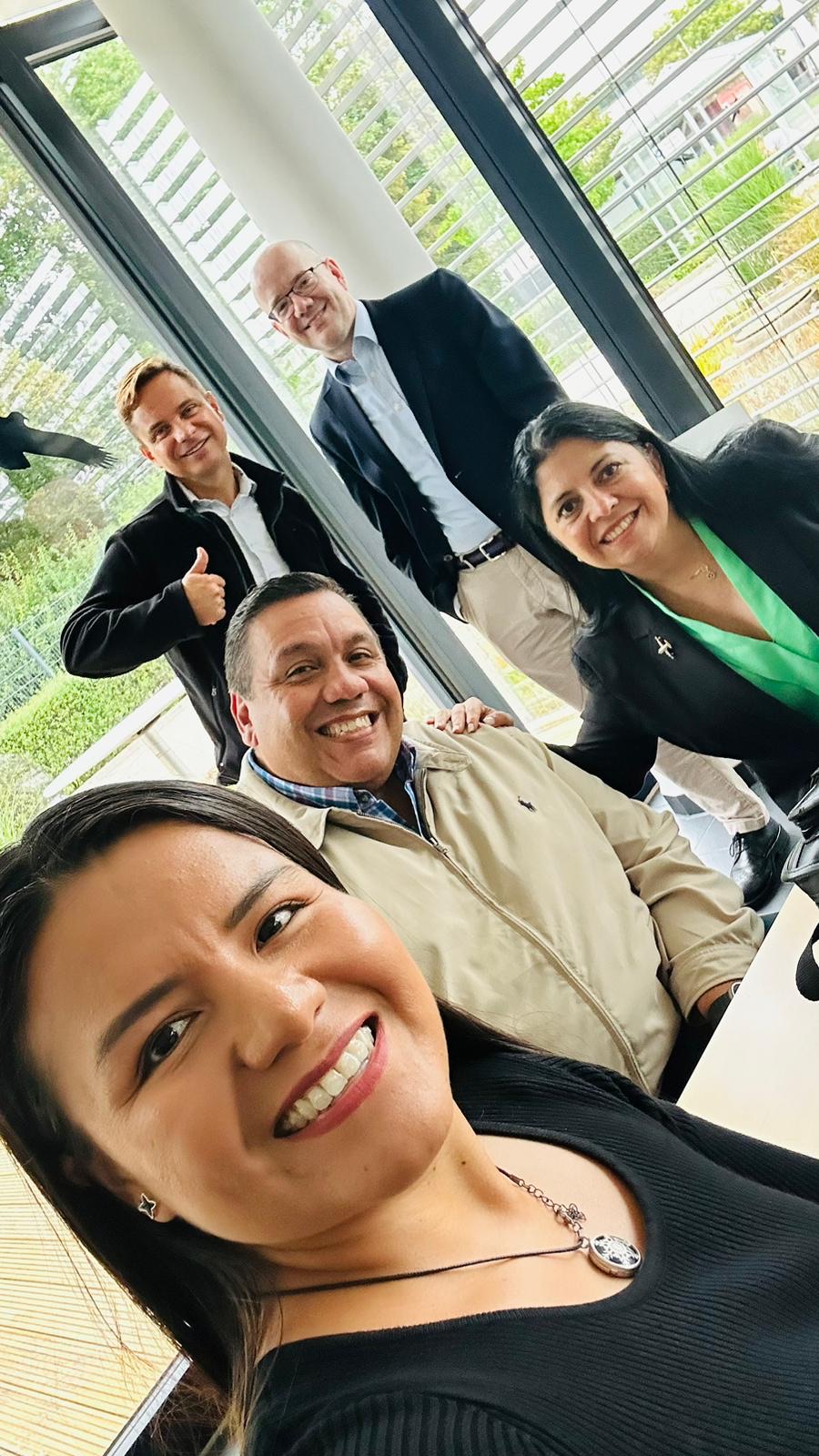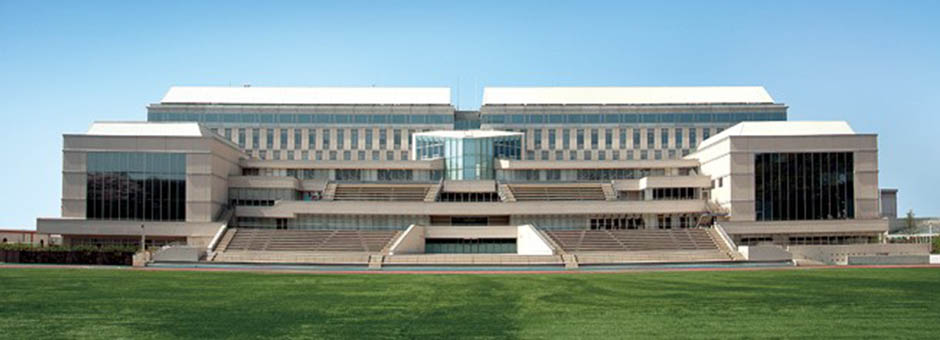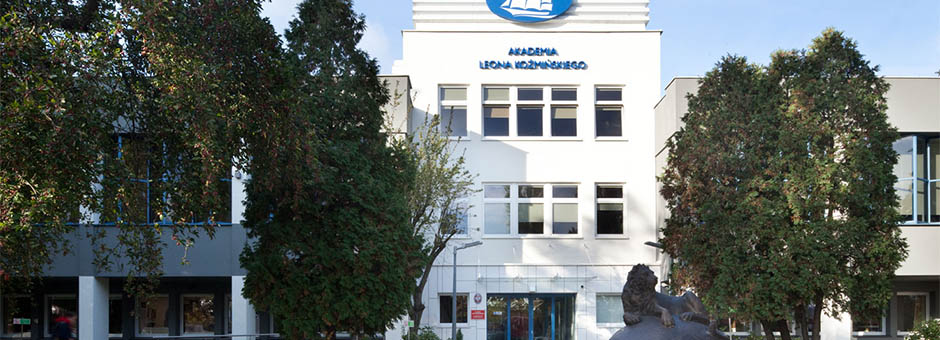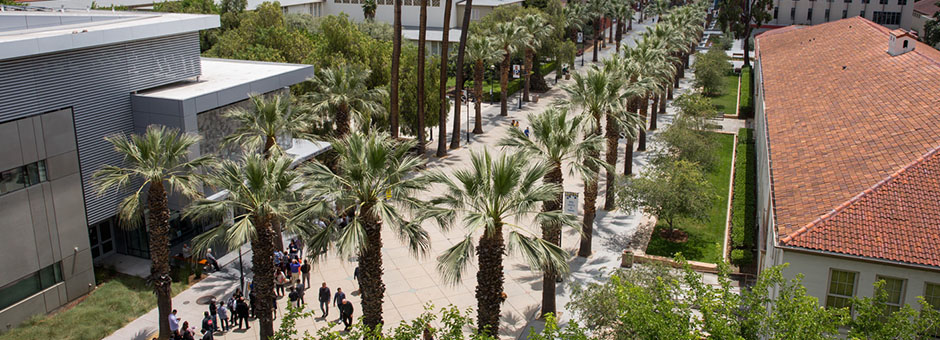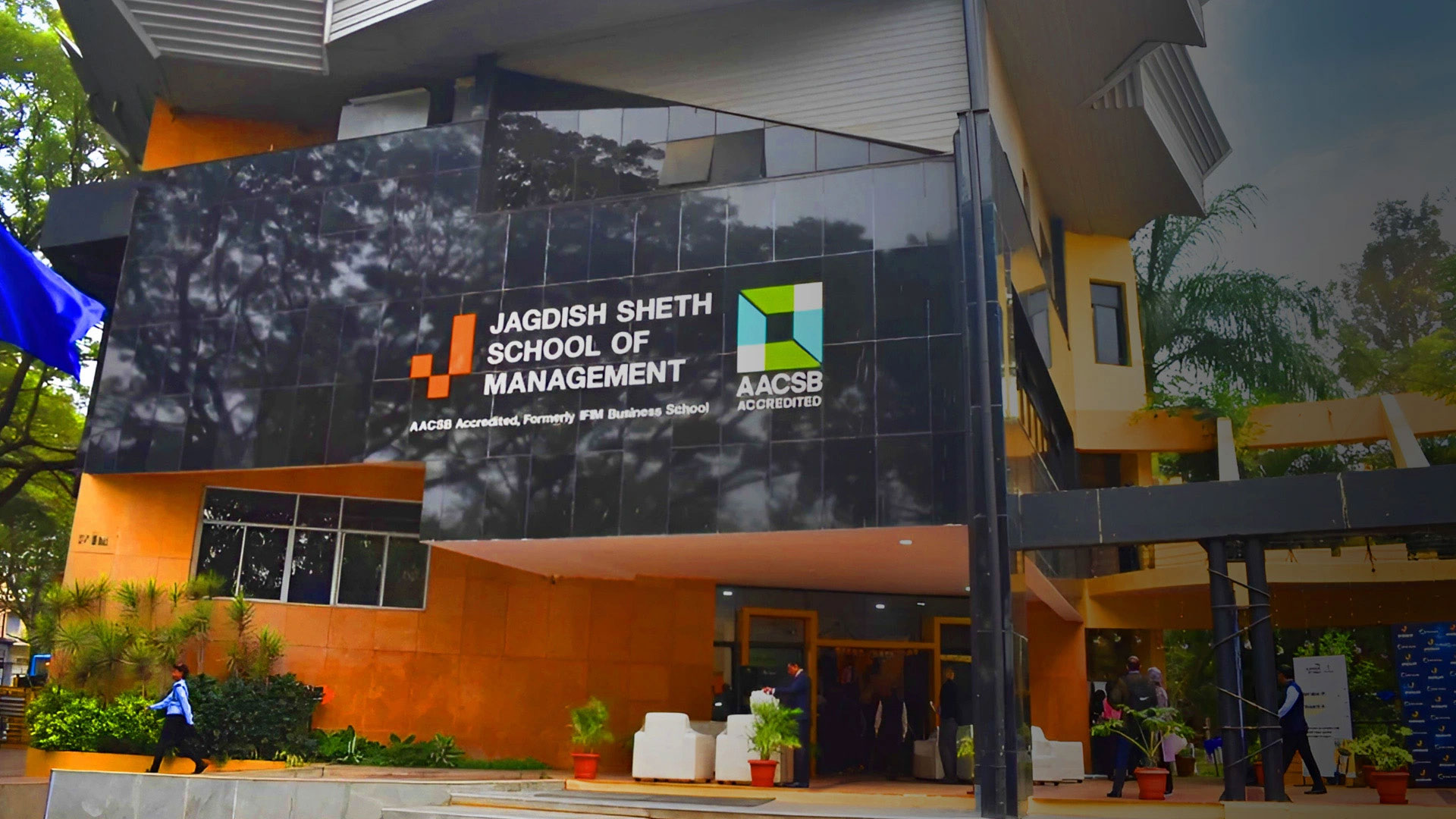
Benefits for your institution:
• Internationalization: a simple and cost-effective way of internationalizing your EMBA program and widening your global connections;
• Experiential learning: a strong cross-cultural and interdisciplinary element across your EMBA program;
• Global reach and business focus: new insights and knowledge by connecting with experts and business leaders across the world;
• Student experience: deeper and broader networks as your students connect with peers from other programs;
• Marketing differentiation: a distinctive component to help your institution stand out from your local competition;
• Reputational impact: enhanced profile with accreditation and ranking bodies;
• Academic collaboration: additional opportunities for cooperation with partner schools on research projects, faculty exchange etc.
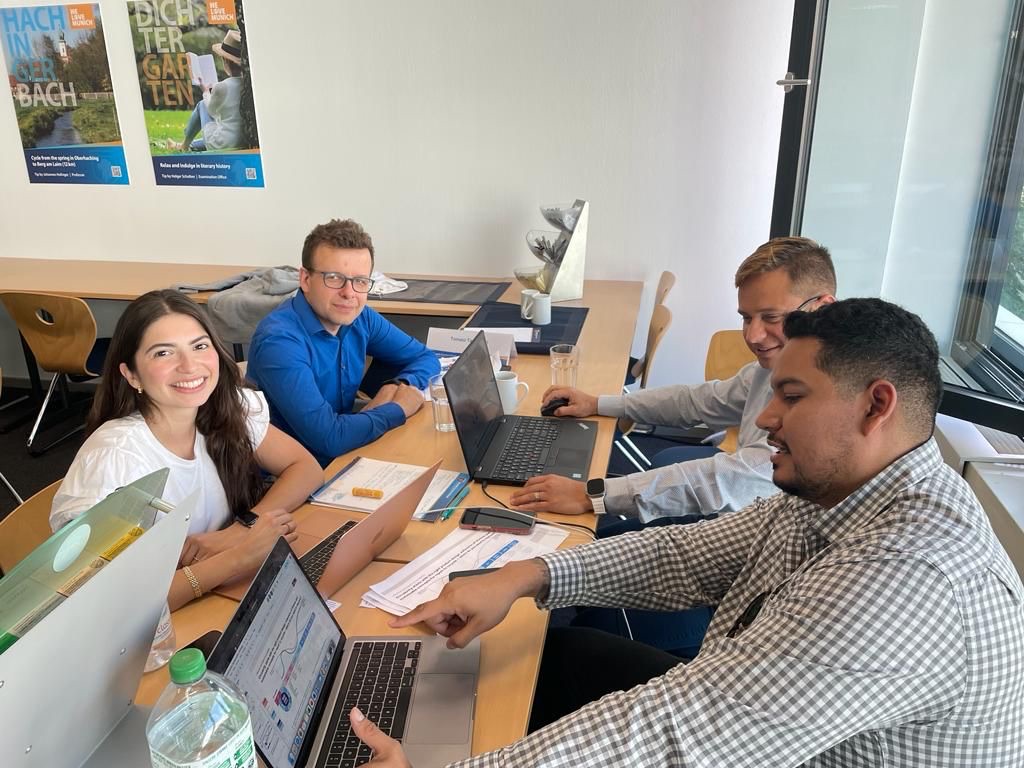

Benefits for your students:
When your institution joins the Consortium, your students have the opportunity to
• increase cross-cultural understanding by looking at “the big picture” from new perspectives;
• share experiences, collaborate on projects and make friends with peers from different parts of the world;
• deepen learning with insights from faculty experts across the globe;
• discover new and challenging business environments (through the annual International week);
• access a broader range of content than would be available in any single school or program (through networked virtual events);
• expand professional networks and enhance management competencies and skills.
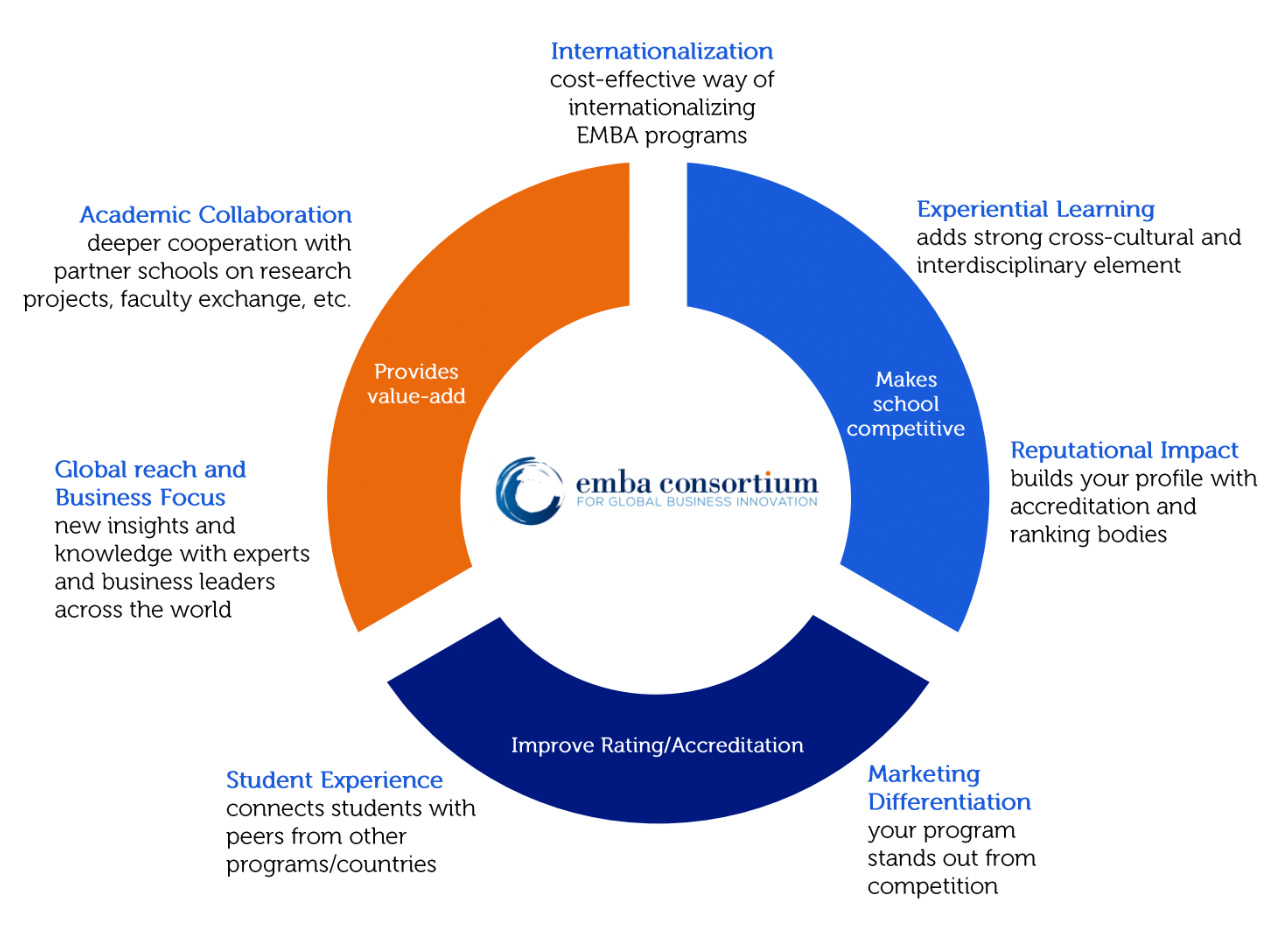
Our Members across the world
Like what you see?
Take the next step…
We aim to have only one school for each country (with the exception of the USA)
We are always keen to offer a number of “pilot/no commitment” places on our International Week to schools interested in joining
To become a member your institution should
• Be a leading institution in your home country
• Run a thriving, sustainable and nationally recognized EMBA program, with a student profile of early- to mid-career professionals
• Teach the majority of its programs in English as the language of instruction
• Hold multiple accreditations (AACSB, EFMD, AMBA etc)
• Be able to provide appropriate programs (in-person International Week, virtual electives etc.)
Find out more. Contact David Simmons, Executive Director: david@embaconsortium.org

INTERNATIONAL WEEK – All You Need To Know
Each EMBA Consortium International Week comprises a range of activities linked to an overarching theme
Academic sessions – a range of lectures delivered by faculty members from the host school designed to extend participants’ knowledge of a particular topic and provide insights into the regional business environment.
Company visits – illuminating conversations with senior executives who present the context in which the business operates, provide insights into what makes the business special and outline future challenges and opportunities. The visits are carefully curated to ensure that they complement and extend the learning from the academic program.
Simulations and “hackathons” – dynamic, “hands-on” interactions, lasting the whole week, where participants work in multi-cultural teams to deliver solutions to a business issue directly related to the overall theme of the week.
Social and cultural events – fun activities that add a spice and flavor to the experience by bringing participants together in shared cultural experiences (everything from immersive virtual Formula One driving experiences to meditation sessions with Zen Buddhist monks, pasta-making, orienteering and virtual safaris).
Membership essentials
International Week – Framework
- All International Week modules take place during the same 7-day period in September.
- Each International Week program (with around 4 participants from each school, capped at between 32-36 participants in total) is designed to bring together the broadest mix of professionals from the entire EMBA Consortium network to facilitate a genuinely international learning experience.
- Upon completion of the module, participants qualify for the EMBA Consortium Diploma.
- Each school sets its own enrolment rules (e.g. for credit or as an optional elective) and runs its own processes as regards student and alumni selection and participation.
- Participants are expected to be experienced professionals with several years’ relevant experience (average age is around 35).
- Programs are offered on a reciprocal basis quid pro quo basis free of charge to participants (member schools offer their International Week program in return for sending their students to other member school programs, free of charge).
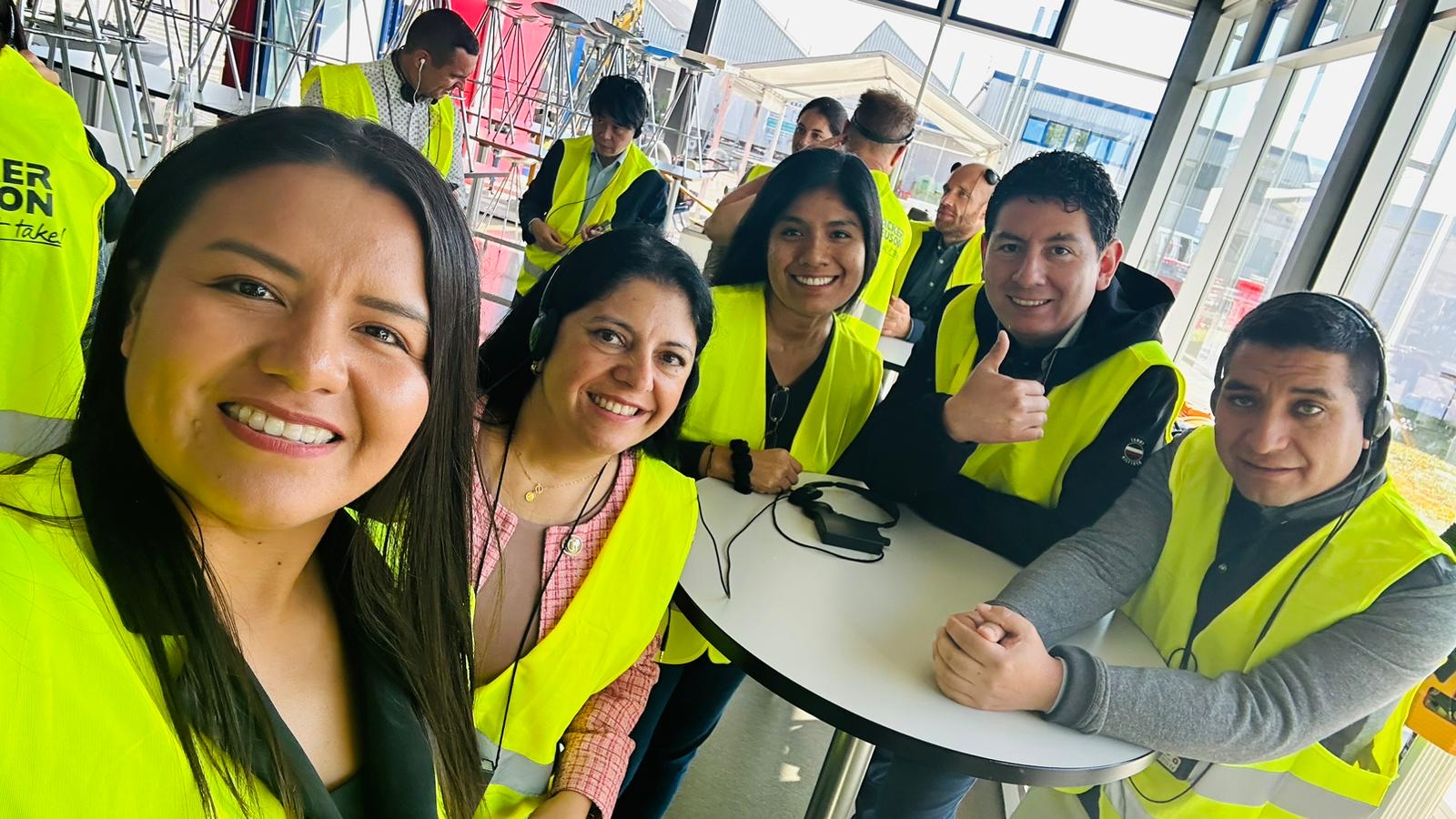
Practical information
Each member school
- Chooses an academic theme attractive to EMBA students and alumni of the consortium’s network
- Appoints an academic program director and administrative coordinator
- Source faculty, industrial experts, corporate visits, and presentations relating to the learning theme
- Facilitates non- academic aspects of the program including accommodation, some meals and local transportation for program visits (participants pay their own accommodation and return travel from their home school)
Each member school is also expected to
- Display prominently, on their website, the relationship to the EMBA Consortium and the benefits to students and alumni
- Distribute to EMBA students and alumni information about other member schools’ International Week events
- Actively participate in The EMBA Consortium’s council and deans’ meetings
- Contribute to the annual participation fees that are determined by the Council in line with the Consortium’s not-for-profit designation.
